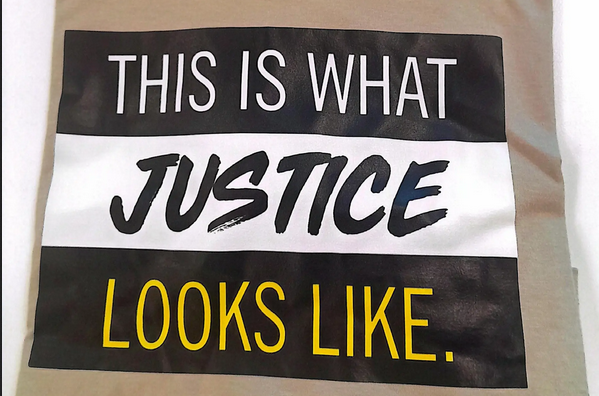Overview
July 2025 was a month marked by courage, crisis, and constitutional reckoning. As Kenyans took to the streets in 20 counties to commemorate Saba Saba and demand accountability, they were met with excessive force, mass arrests, and grave human rights violations—including the deaths of at least 38 people and the charging of hundreds under laws meant for terrorism and capital offences. We witnessed disturbing attacks on peaceful gatherings, erosion of judicial independence, misuse of digital surveillance, and targeted intimidation of human rights defenders. Yet, amid the repression, citizens, civil society, and justice actors stood firm. This edition of the Amnesty Kenya Gazette bears witness to their resistance and renews our call on all state institutions to uphold the Constitution, protect fundamental freedoms, and ensure justice without fear or favour.
In this issue
- Press Freedom and Civil Society Under Attack
- Saba Saba Protests Met with Deadly Force and Escalating Repression
- Misuse of Terrorism Charges and Attack on Judicial Independence
- Children’s Data, Surveillance, and the Fight for Digital Rights
- Police Witnesses Undermine Accountability in the Ahmed Rashid Case
Watch
EPISODE 1 OF RIGHTOUS MADNESS
Same Script, Different Cast
Press Freedom and Civil Society Under Attack
July began with a violent and deeply troubling attack on civil society. On 6th July 2025, nearly 50 masked individuals armed with rungus and pickaxes stormed a press conference hosted at the Kenya Human Rights Commission offices. Over 100 people—including mothers and children of disappeared and killed human rights defenders—had gathered to call for police accountability ahead of the Saba Saba protests. The attackers issued threats that forced the immediate dispersal of the event. Among those targeted were journalists covering the event, marking yet another assault on press freedom and civic space in Kenya.
Under the Police Reforms Working Group and the Law Society of Kenya, we condemned the attack and called for an immediate, thorough, and impartial investigation. We urged the Inspector General of Police and all relevant agencies to identify and prosecute the perpetrators, and to guarantee the safety of journalists, women, HRDs, and all citizens exercising their constitutional rights. Sadly, there have been no public updates on investigations into this violent incident—further deepening concerns over impunity and the shrinking space for civic engagement.
ACT NOW
JUSTICE FOR EUGINE
Eugine was an only child. He was killed during violent policing of a school unrest. He died in a place where he should have felt safe.
Saba Saba Protests Met with Deadly Force and Escalating Repression
This year’s Saba Saba Day commemorations—marking Kenya’s long struggle for democracy, civil liberties, and reforms—were held across 20 counties, as citizens peacefully demanded good governance and respect for human rights. Yet, instead of dialogue and protection, protestors were met with excessive force and human rights violations. At least 38 people lost their lives, over 500 civilians and police officers were injured, and economic losses are estimated at KES 1.1 billion. More than 500 individuals now face criminal charges in courts across the country, including 37—among them a sitting Member of Parliament—charged with abetting terrorism. Others face charges ranging from unlawful assembly to robbery, theft, and murder.
Following these grave developments, the Police Reforms Working Group launched a fact-finding mission in Kajiado County. Eyewitness testimonies and video evidence confirmed extrajudicial executions, unlawful arrests, disappearances, and the use of live ammunition in Ngong, Rongai, Kitengela, and Kiserian.
Armed men suspected to be police officers arrived in unmarked Subarus with no plates, issued no clear warnings, and opened fire indiscriminately on protestors and bystanders alike. Ambulances trailed the vehicles and transported injured civilians to unknown locations—raising serious concerns about coordination and accountability. To date, there is no transparency from the Inspector General on the identities, affiliations, or legality of these armed units or the ambulances involved. We documented at least one case of sexual violence and the prolonged detention of 32 individuals beyond the 24-hour legal limit—31 of whom were later charged with terrorism. While the state must address criminal elements within protests, its primary obligation remains to protect peaceful protestors and uphold constitutional rights. We therefore demand urgent action from the Executive, Parliament, the National Police Service, IPOA, and the Judiciary to end this violent repression and restore public trust.
ACT NOW
DEMAND A PUBLIC INQUIRY INTO THE JUNE 25TH SHOOTINGS IN PARLIAMENT
Join the 600+ Kenyans who have signed this petition, calling for justice and accountability
Misuse of Terrorism Charges and Attacks on Judicial Independence
In the aftermath of the June 25th and Saba Saba protests, the State’s response has drawn widespread condemnation for being inhumane, disproportionate, and deliberately intimidating. Over 1,500 individuals—including prominent human rights defender Boniface Mwangi—have been arrested and charged with a range of serious offences, including terrorism, murder, sexual assault, robbery with violence, and arson. Disturbingly, the Interior Cabinet Secretary has publicly criticised the Judiciary for imposing what he termed as “lenient” bail terms, including KES 50,000 bonds for protestors. This undermines the constitutional right to bail, which is guaranteed under Article 49 of the Constitution and guided by the Criminal Procedure Code. Bail is a right—not a privilege—and must be granted under fair and reasonable terms unless compelling reasons are presented.
We are particularly alarmed by the increasing misuse of the Prevention of Terrorism Act to police public dissent. More than 100 protestors are now facing terrorism-related charges—an approach that distorts the intent of counterterrorism legislation, weakens Kenya’s criminal justice system, and threatens critical international security partnerships. The constitutional independence of the Office of the Director of Public Prosecutions must be safeguarded, and we urge the ODPP to adhere to Article 157(11), which requires them to consider public interest and avoid abuse of legal processes. Their own guidelines on the Decision to Charge, as well as the Inter-Agency Protocols on Terrorism Investigations, must be strictly followed. We have also documented targeted attacks on HRDs and opposition politicians, which point to a coordinated effort to stifle dissent and criminalize activism. Through the Police Reforms Working Group, we call on Kenyan authorities to abandon this dangerous approach, respect judicial independence, and uphold the rule of law and democratic values enshrined in the Constitution.

Amnesty Duka
Introducing Amnesty Duka — our brand-new online store where human rights meet style and purpose! From bold t-shirts to reusable water bottles, every item you purchase isn’t just cool merch — it’s a statement. All proceeds go directly to powering Amnesty Kenya’s work defending human rights across the country. Shop with purpose. Wear your values. Support the movement.
Click on the button below to visit our online store.

Children’s Data, Surveillance, and the Fight for Digital Rights
On the digital rights front, we welcomed the Office of the Data Protection Commissioner’s (ODPC) draft Guidance Note on Processing Children’s Data—a timely step toward safeguarding children in Kenya’s digital ecosystem. In our formal memorandum, we emphasized the need for stronger protections that centre children as rights-holders, not just digital users. We called for an end to exploitative data practices like dark patterns and in-app manipulation, recommended the recognition of children’s evolving capacities by enabling them to exercise their own data rights, and advocated for shifting the burden from parental consent to corporate accountability. We also proposed mandatory audits of AI systems that affect children and the embedding of child rights protections by design and default. Children are not mini-adults; the digital world must reflect and respect their unique vulnerabilities and rights.
Our quarterly Data Governance Café brought together legal experts, civil society actors, and digital rights advocates to critically examine the Kenya Information and Communications (Amendment) Bill 2025. Convened in partnership with the Bloggers Association of Kenya and the Data Privacy and Governance Society of Kenya, the Café unpacked the bill’s sweeping implications—from the threat of metered internet access to the potential normalization of mass surveillance under the guise of service delivery. We raised urgent questions about the bill’s lack of transparency and oversight mechanisms, and explored global standards that Kenya can draw from to protect digital freedoms. We were also honoured to host the Ugandan Data Commissioner and his delegation, whose visit underscored the importance of regional collaboration among regulators and civil society in building resilient, rights-respecting data governance ecosystems. As we continue to engage, we remain clear: national security must never come at the cost of our constitutional freedoms.
Police Witnesses Undermine Accountability in the Ahmed Rashid Case
We continue to closely monitor the pursuit of justice in the high-profile case against former police officer Ahmed Rashid, who stands accused of the extrajudicial execution of two unarmed teenagers. In a troubling turn of events, five police officers summoned to testify against Rashid defied court order. As a result, the court ordered each of them to either pay a fine of KES 10,000 or serve three months in jail for contempt of court. Only one of the six scheduled police witnesses complied with the summons, raising serious questions about institutional accountability within the National Police Service.
During the latest proceedings, critical video evidence was presented—retrieved from the National Police Service’s Integrated Communication, Command and Control Centre (IC3)—showing footage of the fatal shooting. The reliance on digital surveillance infrastructure to verify facts underlines the importance of transparency in police operations. However, the blatant disregard of judicial summons by serving officers highlights an entrenched culture of impunity. True justice for the victims cannot be achieved if officers within the service are allowed to undermine due process with impunity.

